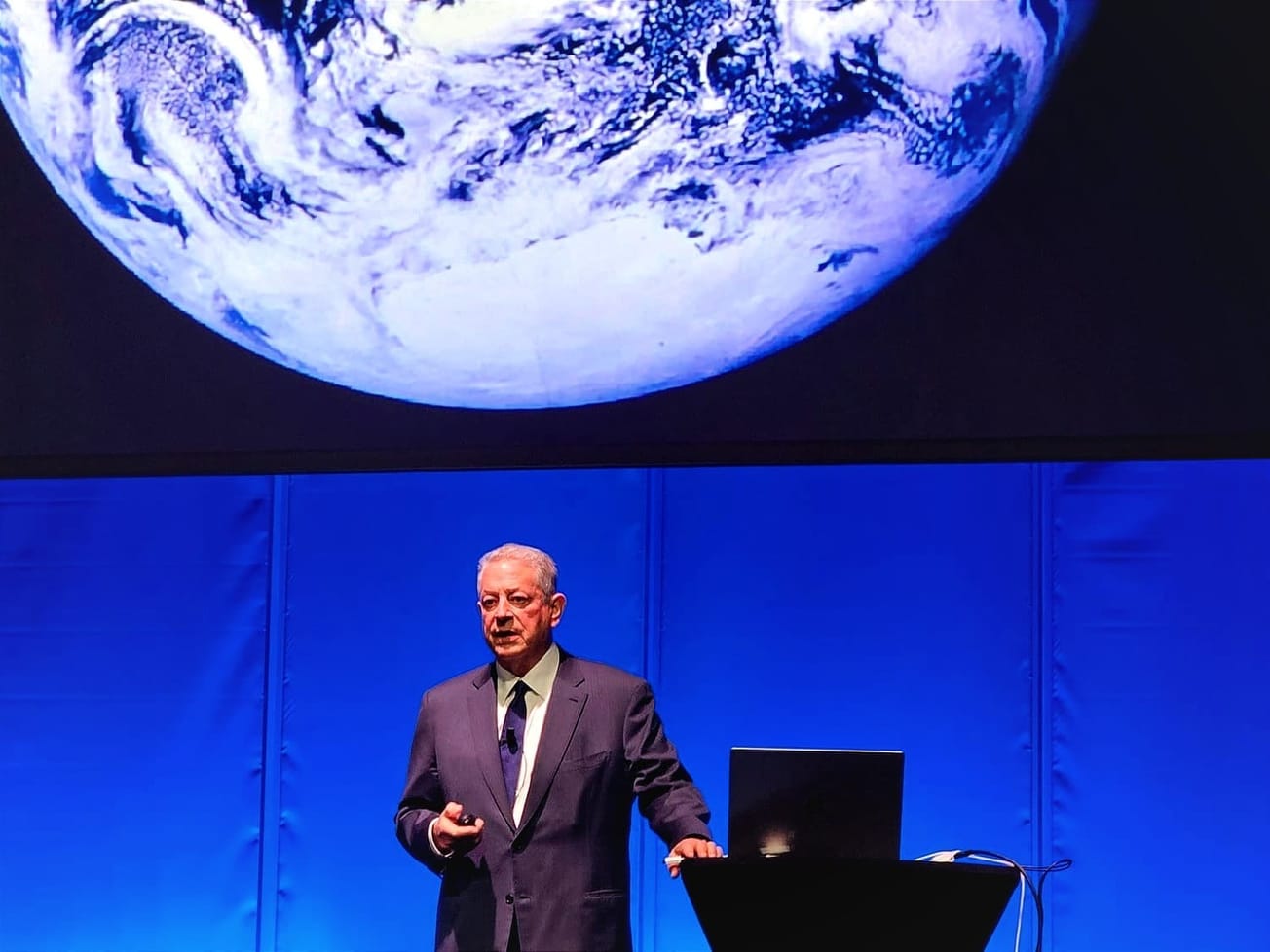GENEVA (AN) — Former U.S. vice president Al Gore says Donald Trump's incoming Republican administration probably won't be able to undo the Democrats' landmark climate law because of hundreds of billions of dollars in announced manufacturing projects across the United States.
On his way to the COP29 climate summit, Gore told a packed auditorium at the European Organization for Nuclear Research, or CERN, on Friday that President Joe Biden's signature 2022 climate legislation should be safe due to those investments, which are expected to take hold during the next Trump administration and create hundreds of thousands of jobs.







